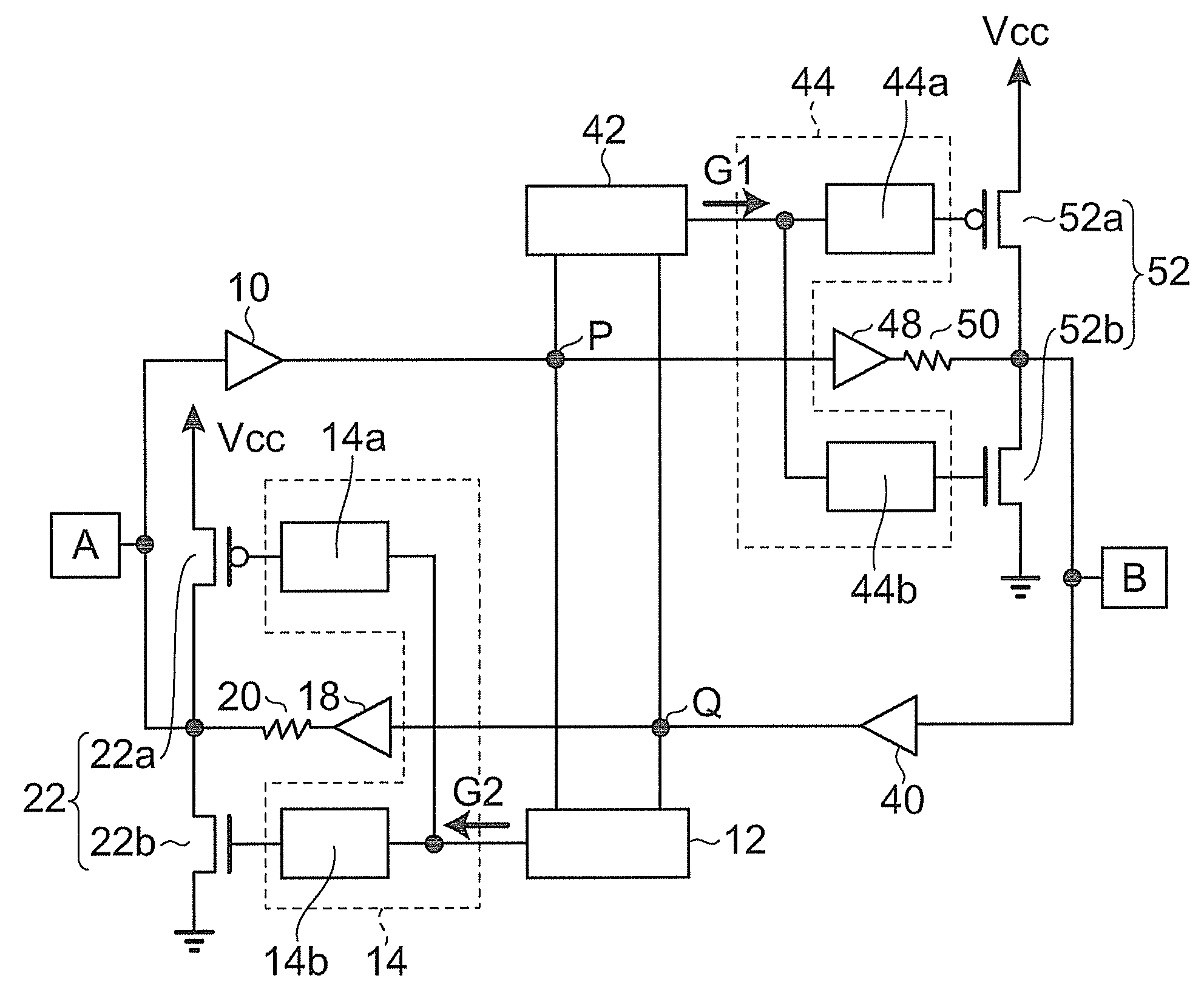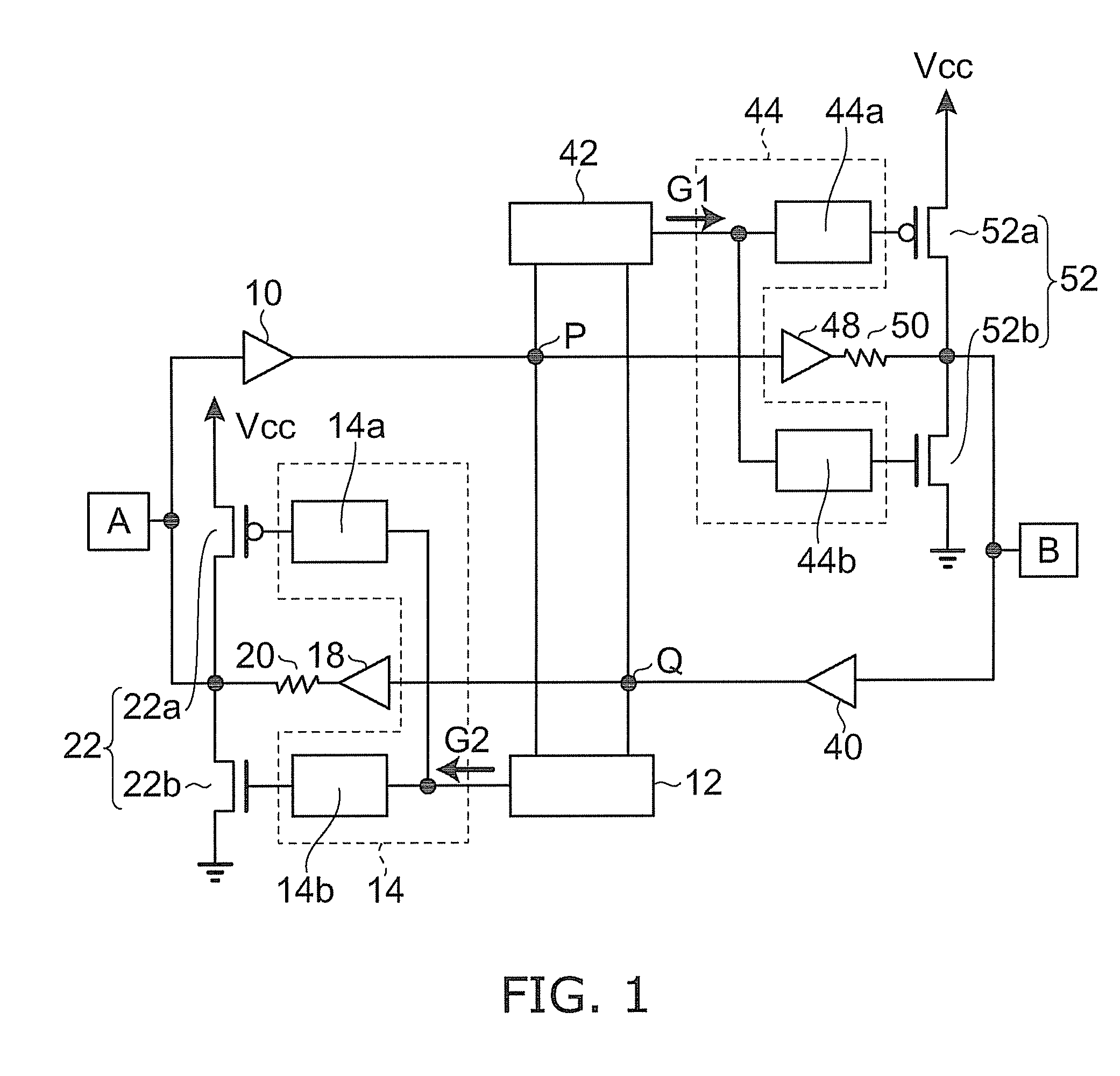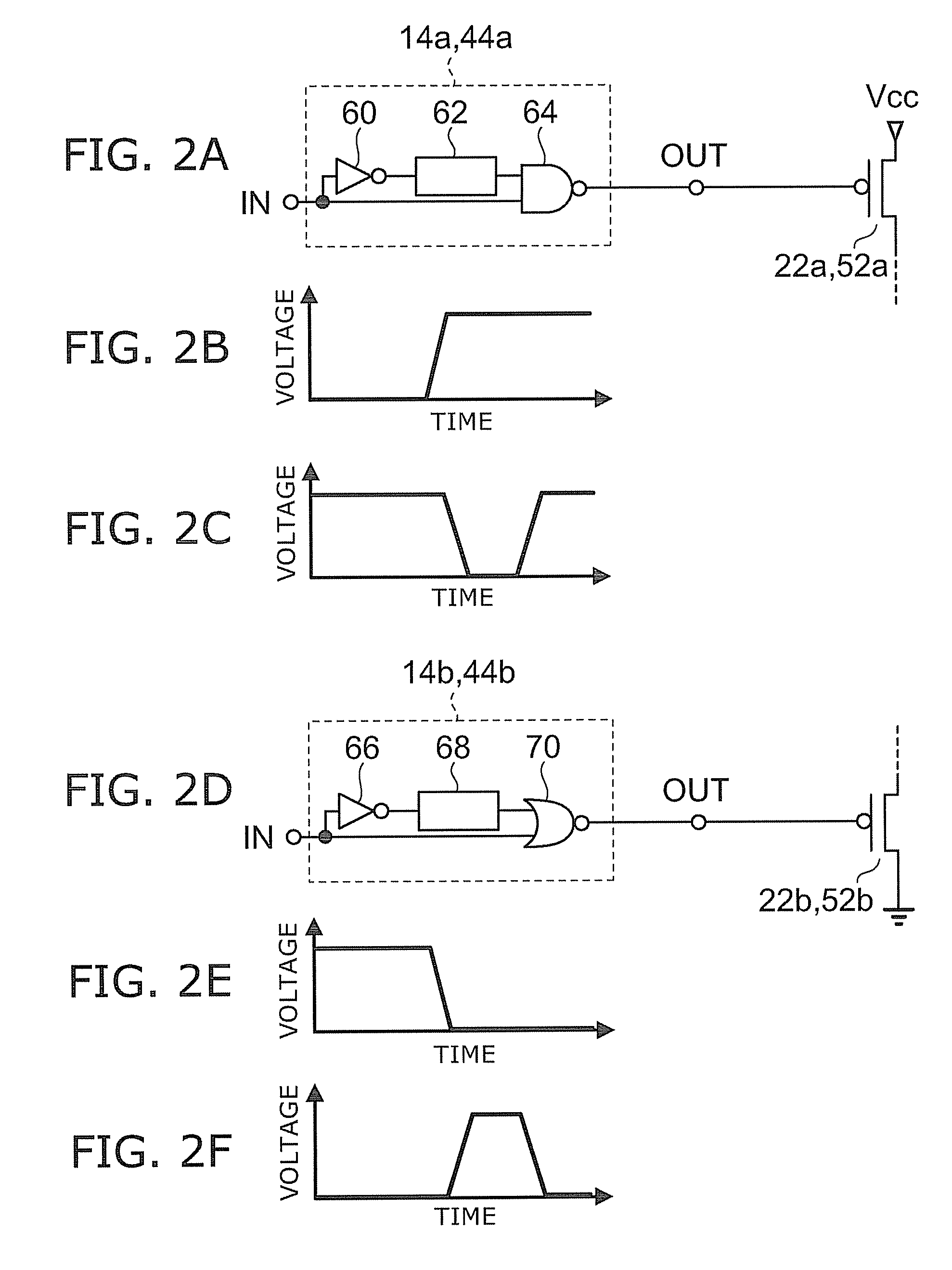Bidirectional buffer circuit and signal level conversion circuit
a buffer circuit and signal level technology, applied in logic circuits, logic circuits coupling/interfaces with bidirectional operation, pulse techniques, etc., can solve the problems of reducing the chip size and the delay of the signal propagation, increasing the cost, and increasing the cos
- Summary
- Abstract
- Description
- Claims
- Application Information
AI Technical Summary
Benefits of technology
Problems solved by technology
Method used
Image
Examples
first embodiment
[0021]FIG. 1 shows a block diagram of a bidirectional buffer circuit according to the invention.
[0022]In this embodiment, the bidirectional buffer circuit mutually transmits data between a first terminal A and a second terminal B, and does not use a switching signal representing a transmission direction of a signal. A signal of a logical value of “0” or “1” is input from the terminal A to, for example, a first input buffer 10.
[0023]An output of the input buffer 10 is input to a first output buffer 48, and is output to the terminal B through a resistor 50. Moreover, the signal input to the terminal B is input to, for example, a second input buffer 40. An output of the input buffer 40 is input to a second output buffer 18, and output to the terminal A through a resistor 20. The buffer circuit may not the input buffers 10, 40, but when the input buffers are provided, the buffer circuit operates more stably.
[0024]As the buffer circuit comprises a data transmission loop having all of the...
PUM
 Login to View More
Login to View More Abstract
Description
Claims
Application Information
 Login to View More
Login to View More - R&D
- Intellectual Property
- Life Sciences
- Materials
- Tech Scout
- Unparalleled Data Quality
- Higher Quality Content
- 60% Fewer Hallucinations
Browse by: Latest US Patents, China's latest patents, Technical Efficacy Thesaurus, Application Domain, Technology Topic, Popular Technical Reports.
© 2025 PatSnap. All rights reserved.Legal|Privacy policy|Modern Slavery Act Transparency Statement|Sitemap|About US| Contact US: help@patsnap.com



